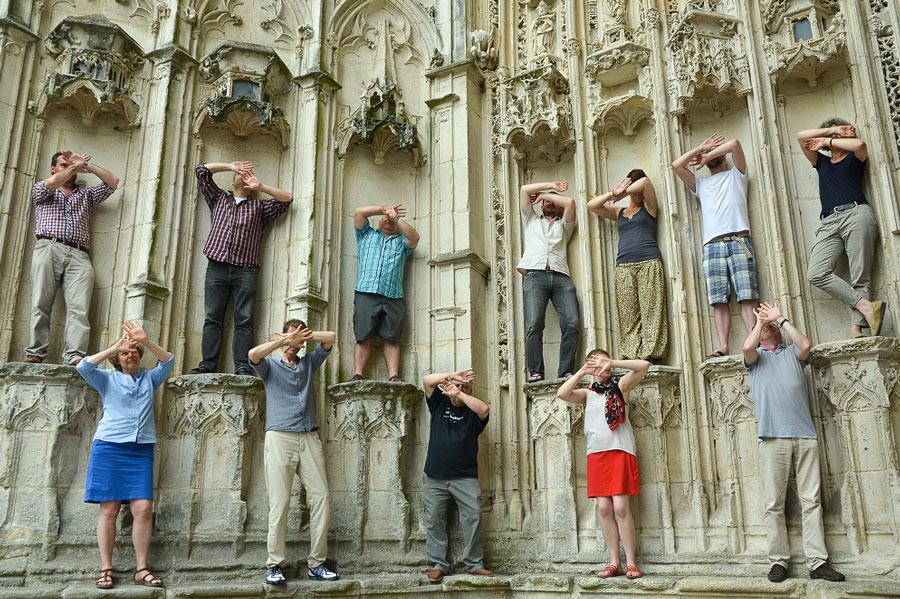Focused, contemplative music and archaic singing. Single syllable and whole words of text emerge from the polyphonic weaves like flashes of memory. Raw chords abound in phrases and dissonances foreign to the classical conception of harmony. Is this a description of elaborate vocal polyphony of the Flemish masters, or of a piece by contemporary author, written only a few years ago? The answer is short: both. The cooperation between Wolfgang Rihm and Huelgas Ensemble suggestively the remarkable continuity of music. The work of Jacobus de Kerleturn is perhaps closer in feeling and expression to a contemporary composition than to works created in the seventeenth or eighteenth century.
The biography of Jacobus de Kerle could easily be turned into a fascinating movie. Often seen as the last representative of the Flemish school, he is usually overlooked when others – such as Willaert, Gombert – are mentioned. Gifted composer and organist, he was ordained a priest which opened the door to a number of church positions in Ypres, Cambrai, Venice, Rome, Augsburg and Prague; de Kerle did a lot of traveling. He was also visited Trento twice during the session of the Council. His Preces speciales performed in this city became a model for the council recommendations for liturgical music of the Roman church, which is particularly interesting given that de Kerle was…excommunicated (well after the end of the council, though). Perhaps this is why the later model of liturgical polyphony was based on the works by Palestrina. Interestingly, Wrocław also played a small part in the biography of Jacobus: for two years he was using the local benefice at the collegiate church of St. Cross. Mass for the Dead – we will listen to its Dies irae sequence – is a distinctive example of de Kerle’s composition style: choral passages are interspersed with polyphonic sections of varying texture.Et Lux by Wolfgang Rihm, composed for Huelgas Ensemble, is designed for string quartet and vocal quartet, but Paul van Nevel decided to double the vocal cast, a move warmly approved by the composer. Among the first performers was Arditti Quartet, but the piece was recorded with the participation of Minguet Quartet which will perform at the Festival.
Rihm gave the liturgical text of Roman Catholic mass for the dead a special treatment: single phrases appear seemingly without order or continuation, with no relationship with each other. Et Lux is not a mass for the dead, but rather a piece about memory, or rather – remembrance. When the singers start losing the strength to finish a started sentence, strings come in to help. The message of the composition emerges gradually during the performance, with some words coming back, gaining significance and inclining contemplation. Of all the Requiem phrases, “Et Lux perpetua eis” is the key, central one: “Let the perpetual light shine upon them”. The composer believes these words can be considered both reassuring and disturbing.

Wratislavia Cantans
Et Lux
09.09.2016
Fri.
7:00 PM
Wrocław, Collegiate Church of the Holy Cross and St Bartholomew
Programme:
Jacobus de Kerle Dies irae z Missa pro defunctis
Wolfgang Rihm Et Lux
Performers:
Paul Van Nevel – conductor
Huelgas Ensemble
Minguet Quartett
Venue:
Wrocław, Collegiate Church of the Holy Cross and St Bartholomew
plac Kościelny, Wrocław
